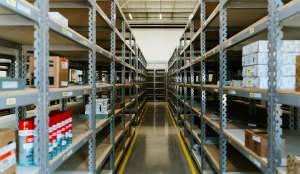Most people will go through a career change at some point in their lives. The journey of finding your vocation is more often than not long and involves countless hours of toil and self-reflection. However, modernity is the best age for career shifting, as more publicly accessible information is available than ever before. Not to mention the plethora of educational resources and methods of study available. With modern education schemes, people in Boston could study nursing programs in New Hampshire and undertake new degrees from the comfort of their homes.
Yet changing careers comes down to more than just studying. It takes a lot of work to see what industries you could pivot into, and what existing skills you have you could leverage to another position. That's why today, we're hoping to lighten the burden and help you find what jobs transition well into healthcare.
Customer Service
Customer service and healthcare are distant industries that have one major commonality - they both demand good people skills.
While there may be something of a pay cut, working in customer service means that you're already capable of dealing with fast-paced, overwhelming situations. Black Friday sales, irate customers, and stock shortages all have certain analogs in the world of healthcare. Do you work the sales rush with customers banging down the door before opening time? Local emergency that has resulted in a glut of interred patients. Difficult customers? Patients and visitors with attitude issues. Stock shortages? Drug or equipment difficulties.
At the core of customer service and healthcare is dealing with people, and the chaos they bring, and any tenured customer service worker will usually have their own strategies and methods of dealing with them. Your crisis experience will transition well to healthcare.
Education
Education is another people-focused industry and working in this sector means you're practiced in a few different skills that translate well to healthcare. The most obvious is the constant explaining. When you're dealing with people going into surgery, or family who want the latest update on their loved one in the hospital, they don't want to know what's happening - they want to understand what's happening.
People in education need to understand how to communicate information to certain groups of people so that it's not just heard, but understood. This skill is valuable in healthcare because you're going to constantly be explaining things. Why certain drugs are being administered, why the wait is so long in administration, what surgeries entail, etc.
However, just like customer service, the education industry is inherently people-centric, meaning you will have experience dealing with all kinds of people in all kinds of scenarios.
Information Technology (IT)
If someone worked in an industry with the word “information” in the name, it would be safe to assume that they're good at handling a lot of data. When you work in healthcare, there are endless amounts of information to process and handle. There are patient data systems and telehealth tech, and with the new emerging uses of AI in the healthcare sector, there is even more call for computers and IT experts than ever before.
Attention to detail, familiarity with computing systems, and understanding of the laws and practices surrounding sensitive client data are all skills that are directly translatable to the world of healthcare.
Administration and Management
A hospital is an ecosystem. Dozens of employees, hundreds of patients, and patient visitors. Someone has to have the job of being the person at the door, taking messages and making sure they reach the right place, data entry, communicating, and liaising between patients and medical staff.
Administration employees are the intermediary between the outside world and the internal operations of whatever business people engage with. In healthcare, this means either dealing with people who are sick, or their families, while also logging necessary interactions, contacting people that clients need to talk to, and more. If you've worked in this field, these skills have directly prepared you for a healthcare career, as your communication skills and information management talents will translate perfectly to your new industry.
Public Safety Workers
By the very nature of their work, public safety workers are used to a crisis situation, and nothing could be more important in a crisis-filled industry like healthcare. Where rapid, confident, and knowledgeable response is often the difference between life and death, public safety workers have the experience of adjusting to crisis scenarios, thinking on the fly, and adapting to high-pressure situations.






